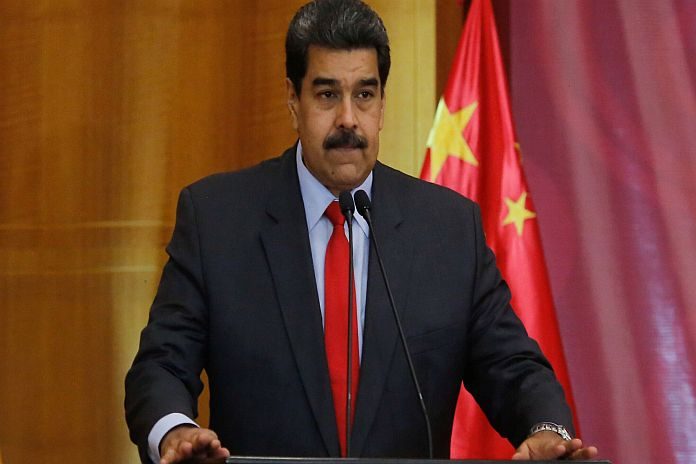By Caribbean News Global contributor ![]()
NEW YORK, USA – On Thursday, 14 new members of the United Nations Human Rights Council (UNHRC) were elected following a secret ballot held in the General Assembly Hall in New York. The government of president Nicolás Maduro won a seat despite political and economic sanctions and fierce attacks from US-allied Latin American countries on claims of “human rights violation”.
“On the same day that the UN permits a dictatorship like Maduro’s to occupy a seat bathed in blood,” Jaun Guaidó said, “the regime produces a human rights violation.”
Meanwhile, Guaidó, called for an “impartial international commission” to investigate this and other killings, Venezuelan foreign minister Jorge Arreaza said after the vote. “We celebrate, once again, the Bolivarian diplomacy of peace at the UN. This victory is historic since we faced a ferocious campaign.”
The Council, which meets throughout the year at the UN office in Geneva, is an international body, within the UN system, made up of 47 States, and is responsible for promoting and protecting human rights around the world. It has the power to launch fact-finding missions and establish commissions of inquiry into specific situations.
Three times a year, it reviews the human rights records of UN Member States, in a special process designed to give countries the chance to present the actions they have taken, and what they’ve done, to advance human rights. This is known as the Universal Periodic Review.
“With the seat, Venezuela will try to undermine scrutiny of its abuses and the abuses of its allies,” said Louis Charbonneau, U.N. director at Human Rights Watch. “The council’s fact-finding missions and commissions of inquiry have done outstanding work. The votes on some issues can be close, so we don’t need countries like Venezuela who try to undermine the good work.”
US Secretary of State Mike Pompeo called Venezuela’s election to the council “truly tragic.”
“This is a harsh blow not just against the victims of the Venezuelan regime, but also against the cause of human rights around the world,” he said. “The Human Rights Council ought to be a protector and defender of human rights of people the world over. It should be speaking out about the daily abuses of the former Maduro regime.”
The newly-elected countries will serve for three years and take up their seats after December 31. Only 47 of the UN’s 193 Member States can sit on the Council at any one time, an equal number will be giving up their places.
The African States stepping down will be Egypt, Rwanda, South Africa, and Tunisia; the Asia-Pacific States bowing out are China, Iraq, Japan and Saudi Arabia; for Eastern Europe the retirees are Croatia and Hungary; and the States leaving from the Western European and other States region, are Iceland and the United Kingdom.
This is how the UNHRC will look, as of 1 January 2020:
African States
Angola, Burkina Faso, Cameroon, Democratic Republic of Congo, Eritrea, Libya, Mauritania, Namibia, Nigeria, Senegal, Somalia, Sudan, Togo
Asia-Pacific
Afghanistan, Bahrain, Bangladesh, Fiji, India, Indonesia, Japan, Marshall Islands, Republic of Korea Nepal, Pakistan, Philippines, Qatar
Eastern Europe
Armenia, Bulgaria, Czech Republic, Poland, Slovakia, Ukraine
Latin American and Caribbean States
Argentina, Bahamas, Brazil, Chile, Mexico, Peru, Uruguay, Venezuela
Western Europe and other States
Australia, Austria, Denmark, Germany, Italy, Netherlands, Spain





